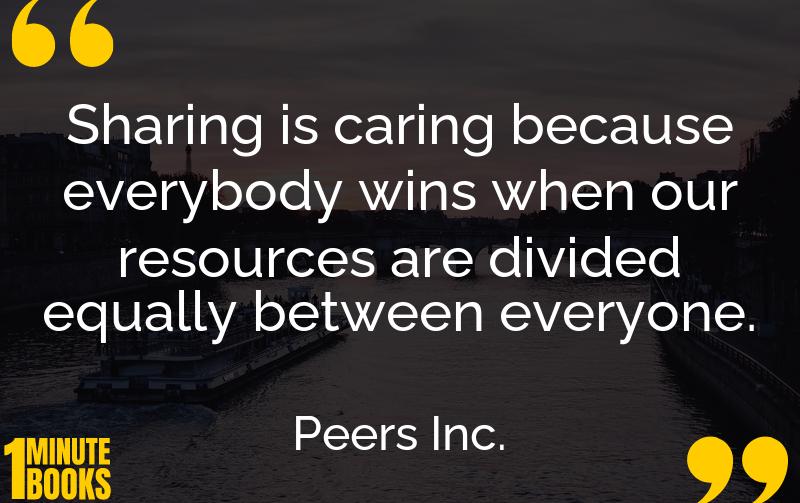
Peers Inc. explores a collaborative economy where peers share resources, maximizing efficiency and reducing waste, as exemplified by Zipcar’s model. It challenges traditional ownership, encourages sharing, and fosters sustainable practices.
Main Lessons
- A collaborative economy emphasizes sharing resources among equals to create a sustainable model.
- Platforms like Zipcar show how using excess capacity can save money and resources.
- Challenges include regulation and competition from traditional businesses resistant to change.
- Success in a collaborative economy requires safeguarding against misuse of sharing platforms.
- Crowdsourcing and public funding offer alternatives to traditional, often restrictive, financing options.
- Embracing a collaborative economy impacts environmental conservation by reducing waste.
- Peer-to-peer models like Uber and Airbnb harness technology to simplify resource sharing.
- Collaboration can disrupt established markets, leading to cost savings and innovative solutions.
- A successful sharing platform needs clear rules and protective measures to maintain integrity and trust.
- Sharing platforms accelerate market entry by engaging communities who share common goals.
- Emphasizing community support over profit can lead to long-term sustainable business growth.
- Regulatory misconceptions can stymie the growth of collaborative platforms, requiring advocacy.
- Public and community backing through crowdfunding fosters deeper connections and brand loyalty.
- Collaborative economies leverage digital platforms to enhance accessibility and convenience.
- By valuing experience over ownership, collaborative platforms can shift consumer habits and expectations.








